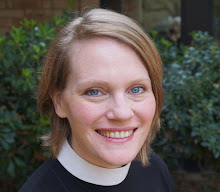Matthew 28:1-10
A Sermon for the people
Of Abiding Presence
April 16, 2017
In
the early 90’s, I was fortunate enough to attend an ELCA Global Mission Event. Several thousand Lutherans gathered in
Atlanta for a few days to hear about the kinds of work our denomination was
doing to participate in God’s mission across the globe. The keynote speaker that year was a woman
named Mudzunga Farisani. She was
beautiful. The kind of woman who could
walk into a room and command it with only her presence. She was from South Africa and had escaped,
just barely, with her life. She and her
family had been detained and tortured more than once by the government because
of her (and her husband’s) refusal to accept the evil of Apartheid. As she spoke, we heard the pain and suffering
of that time in her life. It was
palpable. We could see the rooms she
described. We could feel some of the
suffering she felt in her body as she hid from the police. She was so good at
her descriptions, we could almost hear the voices of those who came for her and
for her family with the intent to harm.
We were so wrapped up in her story that some folks were weeping as they
imagined the scenes that Mrs. Farisani described. Others of us were terrified, but all of us
were riveted to what she was saying. We
were absorbed in her story. We were
feeling her sorrow. We were feeling her
fear. And she told us how her absolute
belief that God was with her in those rooms kept her from despair. Kept her from grief. How her understanding that God would keep God's promise to use evil for good kept her alive. Kept her from giving up and giving in.
At
some point, she stopped abruptly and asked us, “have you heard the Good
News?” The room murmured, most folks
nodding in agreement. So, she asked us
again. “Have you heard the Good
News?” The room answered a little more
audibly. Instead of a murmur, the
response was more of a buzzing and more folks began to answer “yes” and to nod
their heads a little more vehemently. At
this point, Farisani drew herself up to her full height and shouted in a loud
voice, “I said, ‘Have you heard the Good News?’” By now, the room full of Lutherans got it,
and we shouted back “Yes!” And she said
the only thing that I have ever inscribed in my Bible: “if the Good News of Jesus Christ has reached
your heart, please inform your face.”
I
think of her often, but I especially remember her on Easter.
Christ
is Risen! (He is risen indeed. Alleluia!)
Christ
is Risen! (He is risen indeed. Alleluia!)
Christ
is Risen! (He is risen indeed. Alleluia!)
The
trouble with hearing a story too often is that it can lose some of its
emotional power as we become overly familiar with it. We already know the rest of the story, but
let’s think about it for a minute, the Gospel this morning is a frightening
one. And for those who haven’t heard the
rest of the story who are living it out, this whole scene would be terrifying. Jesus has been crucified, lain in a tomb, and
sealed with a stone. The women, Mary
Magdalene and Mary, head to the tomb that first Easter morning Matthew tells us
“to see the tomb”. These were the women
who stayed with Jesus as he died. We
don’t know for sure what they were trying to do there (maybe they were simply there to watch and to wait?), but we do know that they
were afraid for their lives. Jesus was
dead, and you could be sure that the Romans were planning to round of any of
Jesus’s followers who did not get the message from the empire “stop spreading hope. Stop calling for resistance…or you’ll be
next.” The women were on their way to
the tomb and risking their lives to do so, but the men were in hiding.
They
arrive at the tomb to find it attended by a squadron of guards there by
Pilate’s order. And as they approach, an
earthquake hits as an angel, a messenger of God, rolls away the stone. The guards “become like dead men” (in a bit
of literary irony). They faint and fall
over. But, really, can we blame
them? I imagine the women to be good and
frightened by now, but the angel says to them “Don’t be afraid”. If you study the Greek, you’ll see that it
could perhaps more accurately be translated as “Don’t YOU be
afraid.” As in, come on, gals, don’t be
like those scaredy-cat guards. I’ve got
some great news… “I know that you are looking for Jesus the crucified
one. He is not here, for he was raised just as he said.”
And as Wartburg professor Judith Jones says, "The
resurrection has already happened. The stone has been rolled away not to let
Jesus out, but to let the witnesses in."[1]
So they left the tomb quickly with fear and great
joy, and ran to tell the rest of his disciples. Suddenly Jesus met them and
said, "Greetings!" And they came to him, took hold of his feet, and
worshiped him. Then Jesus said to them, "Do not be afraid; go and tell my
brothers to go to Galilee; there they will see me."
Do
not be afraid. Go and tell the story
that death, the last enemy, has been defeated.
God, love, has won.
Have
you heard the Good News?
Christ
is risen! He is risen indeed. Alleluia!
Christ
is risen! He is risen indeed. Alleluia!
Christ
is risen! He is risen indeed. Alleluia!
Alleluia! Amen.





